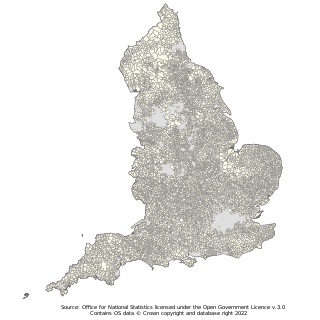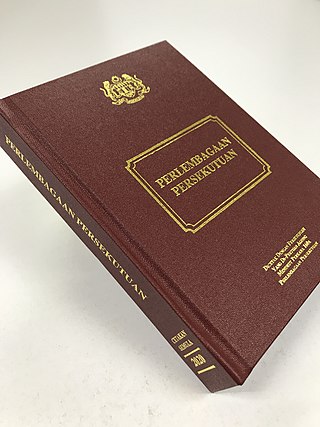
A parish council is a civil local authority found in England, which is the lowest tier of local government. They are elected corporate bodies, with variable tax raising powers, and they carry out beneficial public activities in geographical areas known as civil parishes. There are about 10,480 parish and town councils in England. Parish councils may be known by different styles, they may resolve to call themselves a town council, village council, community council, neighbourhood council, or if the parish has city status, it may call itself a city council. However their powers and duties are the same whatever name they carry.

The Constitution of South Africa is the supreme law of the Republic of South Africa. It provides the legal foundation for the existence of the republic, it sets out the rights and duties of its citizens, and defines the structure of the Government. The current constitution, the country's fifth, was drawn up by the Parliament elected in 1994 in the South African general election, 1994. It was promulgated by President Nelson Mandela on 18 December 1996 and came into effect on 4 February 1997, replacing the Interim Constitution of 1993. The first constitution was enacted by the South Africa Act 1909, the longest-lasting to date. Since 1961, the constitutions have promulgated a republican form of government.

The Federal Constitution of Malaysia, which came into force in 1957 as the Constitution of the Federation of Malaya and was amended in 1963 to form the Constitution of Malaysia, is the supreme law of Malaysia and contains a total of 183 articles. It is a written legal document influenced by two previous documents, the Federation of Malaya Agreement 1948 and the Independence Constitution of 1957. The Federation was initially called the Federation of Malaya and it adopted its present name, Malaysia, when the states of Sabah, Sarawak and Singapore became part of the Federation. The Constitution establishes the Federation as a constitutional monarchy, having the Yang di-Pertuan Agong as the Head of State with largely ceremonial roles. It provides for the establishment and organisation of three main branches of the government: the bicameral legislative branch called the Parliament, which consists of the House of Representatives and the Senate ; the executive branch led by the Prime Minister and his Cabinet Ministers and the judicial branch headed by the Federal Court.
In England and Wales, charter trustees are set up to maintain the continuity of a town charter or city charter after a district with the status of a borough or city has been abolished, until such time as a civil parish council or in larger settlements, a town council is established. Duties are limited to ceremonial activities such as the election of a mayor, and various other functions depending upon local customs and laws.

In England, a civil parish is a type of administrative parish used for local government. It is a territorial designation which is the lowest tier of local government. Civil parishes can trace their origin to the ancient system of parishes, which for centuries were the principal unit of secular and religious administration in most of England and Wales. Civil and religious parishes were formally split into two types in the 19th century and are now entirely separate. Civil parishes in their modern form came into being through the Local Government Act 1894, which established elected parish councils to take on the secular functions of the parish vestry.
A town council, city council or municipal council is a form of local government for small municipalities.
In Ireland, direct elections by universal suffrage are used for the President, the ceremonial head of state; for Dáil Éireann, the house of representatives of the Oireachtas or parliament; for the European Parliament; and for local government. All elections use proportional representation by means of the single transferable vote (PR-STV) in constituencies returning three or more members, except that the presidential election and by-elections use the single-winner analogue of STV, elsewhere called instant-runoff voting or the alternative vote. Members of Seanad Éireann, the second house of the Oireachtas, are partly nominated, partly indirectly elected, and partly elected by graduates of particular universities.
A parochial church council (PCC) is the executive committee of a Church of England parish and consists of clergy and churchwardens of the parish, together with representatives of the laity. It has its origins in the vestry committee, which looked after both religious and secular matters in a parish. It is a corporate charitable body.
A community council is a public representative body in Great Britain.
A vestry was a committee for the local secular and ecclesiastical government of a parish in England, Wales and some English colonies, which originally met in the vestry or sacristy of the parish church, and consequently became known colloquially as the "vestry". At their height, the vestries were the only form of local government in many places and spent nearly one-fifth of the budget of the British government. They were stripped of their secular functions in 1894 and were abolished in 1921.
Massachusetts shares with the five other New England states a governmental structure known as the New England town. Only the southeastern third of the state has functioning county governments; in western, central, and northeastern Massachusetts, traditional county-level government was eliminated in the late 1990s. Generally speaking, there are four kinds of public school districts in Massachusetts: local schools, regional schools, vocational/technical schools, and charter schools.
A parish meeting is a meeting all the electors in a civil parish in England are entitled to attend.

In England and Wales, an extra-parochial area, extra-parochial place or extra-parochial district was a geographically defined area considered to be outside any ecclesiastical or civil parish. Anomalies in the parochial system meant they had no church or clergymen and were therefore exempt from payment of poor or church rates and usually tithes. They were formed for a variety of reasons, often because an area was unpopulated or unsuitable for agriculture, but also around institutions and buildings or natural resources. Extra-parochial areas caused considerable problems when they became inhabited as they did not provide religious facilities, local governance or provide for the relief of the poor. Their status was often ambiguous and there was demand for extra-parochial areas to operate more like parishes. Following the introduction of the New Poor Law, extra-parochial areas were effectively made civil parishes by the Extra-Parochial Places Act 1857 and were eliminated by the Poor Law Amendment Act 1868. This was achieved either by being integrated with a neighbouring or surrounding parish, or by becoming a separate civil parish if the population was high enough.

The Local Government Act 1894 was an Act of the Parliament of the United Kingdom that reformed local government in England and Wales outside the County of London. The Act followed the reforms carried out at county level under the Local Government Act 1888. The 1894 legislation introduced elected councils at district and parish level.

The Alabama Legislature is the legislative branch of the government of the U.S. state of Alabama. It is a bicameral body composed of the House of Representatives and Senate. It is one of the few state legislatures in which members of both chambers serve four-year terms and in which all are elected in the same cycle. The most recent election was on November 6, 2018. The new legislature assumes office immediately following the certification of the election results by the Alabama Secretary of State which occurs within a few days following the election.

The Representation of the People Act 1983 is an Act of the Parliament of the United Kingdom. It changed the British electoral process in the following ways:
Kerala has an urbanisation rate of 47.42%, as compared to the national rate of 31.16%, making it the 2nd most urbanised major state in India. Within Kerala, the rate of urbanisation varied from 3.9% in Wayanad district to 68.1% in Ernakulam district. Municipalities are the urban local governments that deal with civic functions and local development functions in the municipal area. The state of Kerala has 87 municipalities and six municipal corporations. With 13 municipalities, the district of Ernakulam has the most municipalities in the state.

There are five types of elections in the United Kingdom: elections to the House of Commons of the United Kingdom, elections to devolved parliaments and assemblies, local elections, mayoral elections, and police and crime commissioner elections. Within each of those categories, there may also be by-elections. Elections are held on Election Day, which is conventionally a Thursday, and under the provisions of the Dissolution and Calling of Parliament Act 2022 the timing of general elections can be held at the discretion of the prime minister during any five-year period. All other types of elections are held after fixed periods, though early elections to the devolved assemblies and parliaments can occur in certain situations. The five electoral systems used are: the single member plurality system (first-past-the-post), the multi-member plurality, the single transferable vote, the additional member system, and the supplementary vote.







